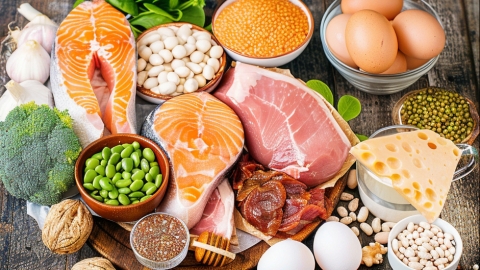慢性胆囊炎Patient吃What
Patients with chronic cholecystitis should consume low-fat, high-quality protein foods, fresh vegetables, low-sugar fruits, whole grains, and light plant oils. If persistent dull pain in the upper right abdomen, nausea, vomiting, or worsening indigestion occurs, prompt medical consultation at a hepatobiliary surgery or gastroenterology department is recommended.

1. Low-fat, high-quality protein foods: such as skinless chicken, fish (steamed or boiled), tofu, and skim milk. These foods provide essential proteins with low fat content, minimizing excessive stimulation of gallbladder contraction and reducing gallbladder burden.
2. Fresh vegetables: such as spinach, winter melon, broccoli, and carrots. Rich in dietary fiber and vitamins, these vegetables promote intestinal motility and digestion. Vitamins help enhance immune function, and their low-calorie, low-fat nature makes them suitable for long-term consumption.
3. Low-sugar fruits: such as apples, pears, strawberries, and blueberries. High in vitamins and water content, they provide nutrition without causing significant blood glucose fluctuations. This helps avoid indirect disruption of bile metabolism due to high sugar intake. Avoid consuming large amounts of acidic fruits at once.
4. Whole grains: such as oats, millet, brown rice, and whole wheat bread. Rich in dietary fiber and B vitamins, they provide sustained energy, support stable digestive function, reduce gallbladder discomfort caused by indigestion, and have a low glycemic index.
5. Light plant oils: such as olive oil, tea seed oil, and sunflower oil. Use these oils in cooking while controlling portion size (no more than 25 grams per day). Their fatty acid composition is easier for the body to digest and absorb. Avoid animal fats and repeatedly heated frying oils.
Daily care includes maintaining regular meal times to prevent prolonged fasting, eating until 70–80% full at each meal, using cooking methods such as steaming, boiling, and stewing, and avoiding cold dishes or raw foods. Regular gallbladder ultrasound examinations should be performed to monitor gallbladder wall thickness and inflammatory status.






